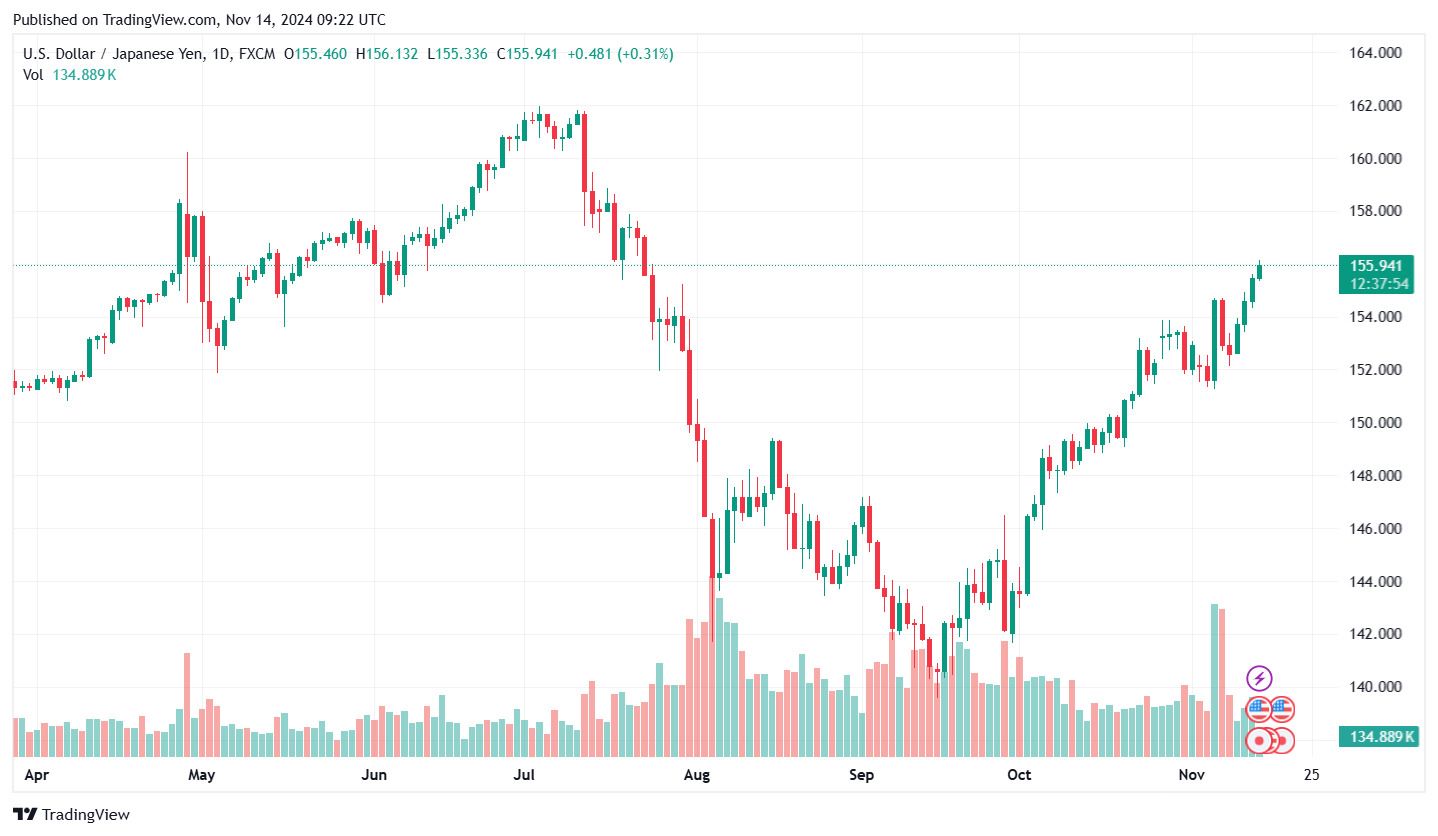According to FXStreet, on November 14, the Japanese Yen (JPY) continued to depreciate against the US Dollar for four consecutive days and fell below 156.00 for the first time since July.
Although Japan’s producer price index (PPI) rose the most in more than a year in October, political uncertainty in Japan is making it difficult for the Bank of Japan (BoJ) to decide on raising interest rates. In addition, concerns that the Trump administration’s trade tariffs will hurt the Japanese economy are also putting pressure on the JPY.
Meanwhile, the Trump administration’s upcoming stimulus policies could increase inflation, forcing the US Federal Reserve (Fed) to pause interest rate cuts. In addition, the recently released US consumer price index (CPI) showed a slowdown in inflation, which could lead to fewer Fed rate cuts next year. This has helped US government bond yields rise, pushing the value of the dollar to its highest level of the year, while making the yen less attractive due to low interest rates.
However, there is speculation that Japanese authorities may intervene in the foreign exchange market to support the Yen, which may deter some investors from betting on a weaker JPY.
But overall, the current situation suggests that USD/JPY is likely to rise in the near term. US weekly jobless claims and producer price index (PPI) data could influence USD/JPY ahead of a speech by Fed Chairman Jerome Powell and Japan's preliminary Q3 GDP figures on Friday.






